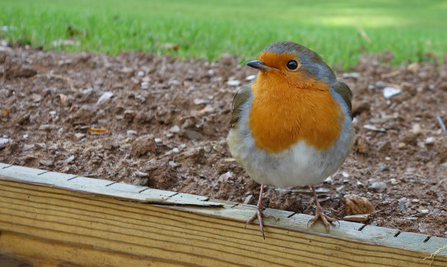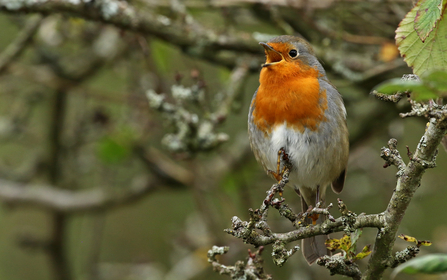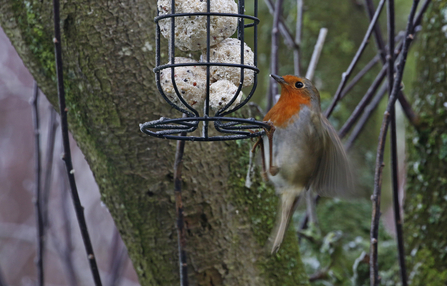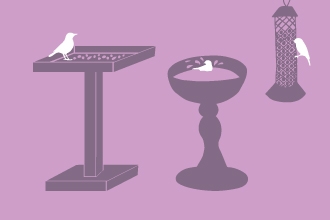Our characterful garden robins are the natural world's representative for our festive season and are much-loved by the British public, regularly being voted the nation's favourite bird. They're one of our most recognisable and one of our most common birds and people are delighted when 'their' robin visits the garden, allotment, balcony or other outdoor space.
Festive robins
Robin in snow by Wendy Carter

Robin by Wendy Carter
Did you know, though, that 'your' robin - you know, the one that follows you round as you potter in the garden - is probably one of many that you consider to be yours? A survey in Norfolk that tracked which gardens were being used by which blackbirds show that one garden alone had 74 individual blackbirds pay it a visit - 'their' blackbird didn't really exist in quite the way that they'd imagined. Robins are no different and while our wildlife is certainly having a tough time of it out there, it can be amazing to discover that your neighbourhood is more full of more robins than you'd have thought.
As if that isn't enough to make you pause for thought, the robins that you're seeing during winter may not be the same ones that have been with you all summer. We're used to knowing that our hedges fill with different birds as the seasons change - chiffchaffs and garden warblers arrive in spring whereas fieldfares and redwings arrive in autumn. Robins do the same; during autumn we have an influx of robins from Scandinavia. Some of these birds simply pass through on their way to France and Spain but others pause and spend winter with their British relatives. Experts would have you believe that there are gentle differences in the tone of the feather colours that can help you identify our continental robins but I think you might have to really train your eyes to see such subtleties.

Robin singing by Wendy Carter
Robins are one of few birds whose song fills the air during winter months, most other birds only sing when they’re wooing a mate for breeding in the spring. They’re also unusual in that both males and females sing during winter, although neither sing the full-blown spring song. Birds sing for different reasons but one of these is to defend a territory. Territorial patches are important during winter because it's how birds ensure access to the food needed to get them through each cold night. If you've seen more than one robin in your garden you may have noticed that they can get quite aggressive towards one another and fights to the death do occasionally happen. They will, however, tolerate other birds where needs must.
Thanks to ringing efforts (where a small ring is placed around one leg of a bird) we know that the oldest known robin was over eight years old but most have an average lifespan of just two years. Cold winters, predators, food shortages and disease all take their toll but we can give these beautiful birds and their feathered friends a hand. If you've got a garden or perhaps you help to manage a local community space, why not pop out some food during winter and put up a birdbox somewhere. If you’ve got a creeper growing up a wall, why not tuck an open-fronted box in amongst the vegetation – as it leafs-up in spring, it will provide a perfectly hidden and sheltered spot for one of your neighbourhood robins to breed in. Perhaps you could ask Santa for a box for Christmas?

Robin by Wendy Carter
More information about how to go about this can be found in the links below but as robins give us so much cheer all year round, why not reward them with a cosy home and a nice meal to tuck into. Our friends at Vine House Farm give 4% of every sale and £10 for new customers to Worcestershire Wildlife Trust – why not check out their food, feeders and nest boxes.
For more information about why robins are such a Christmas favourite, take a look at Ion's video below. Until next year, I wish you a Merry Christmas and a wildlife-filled 2022!




